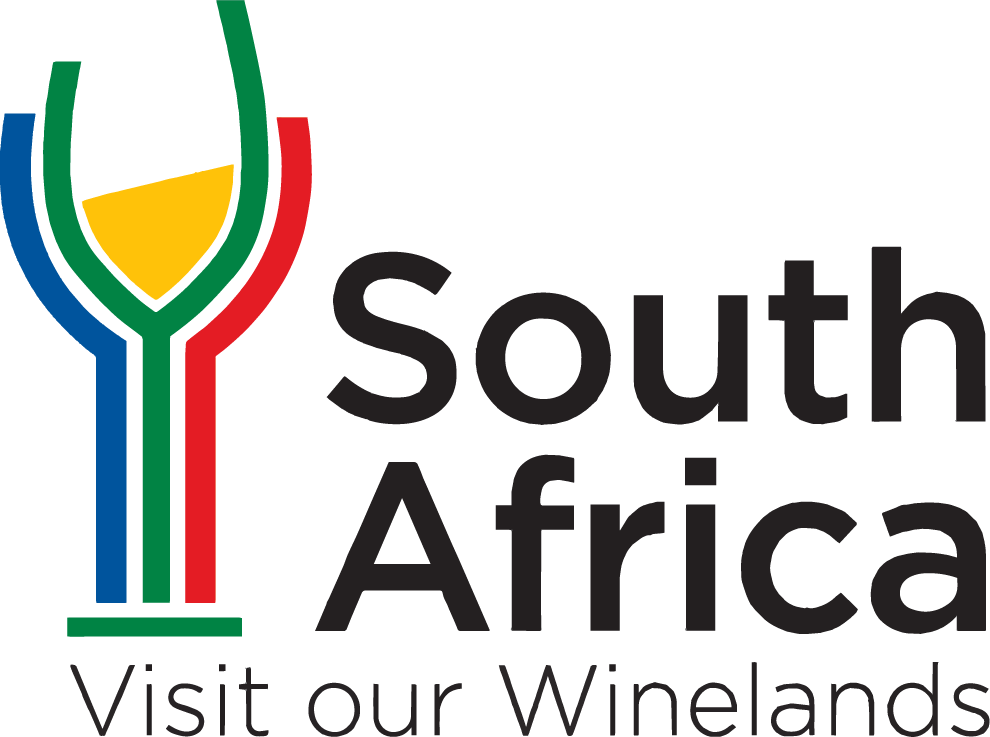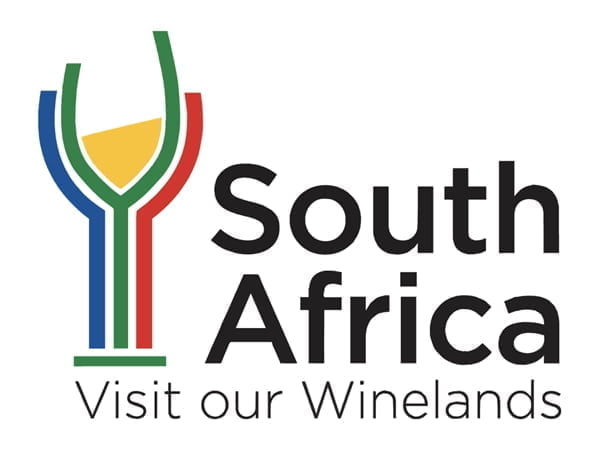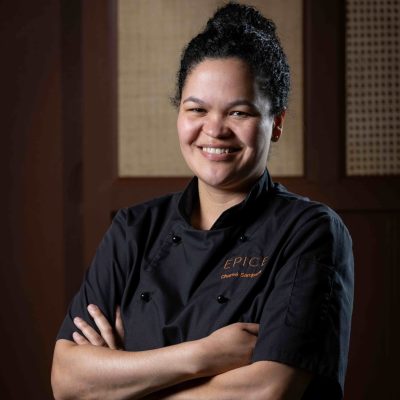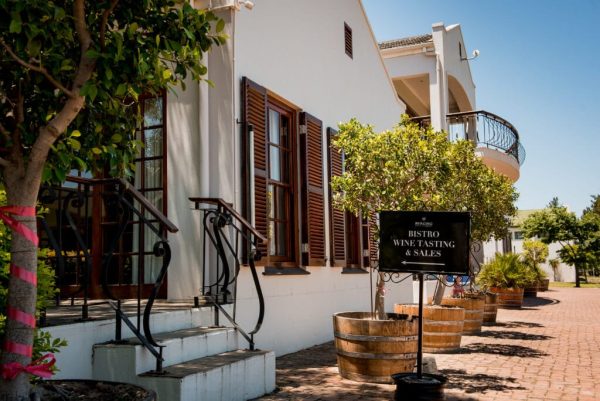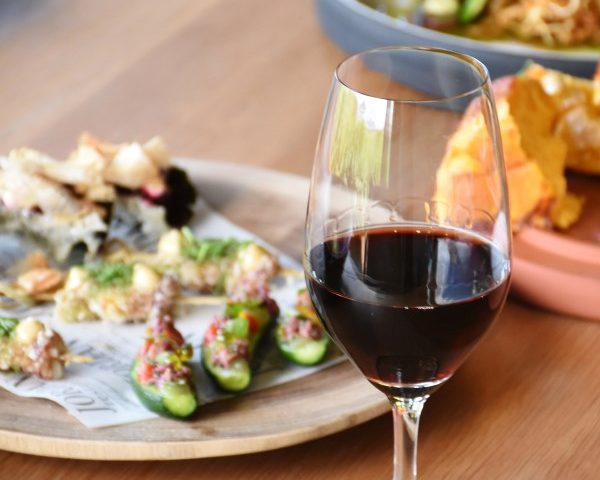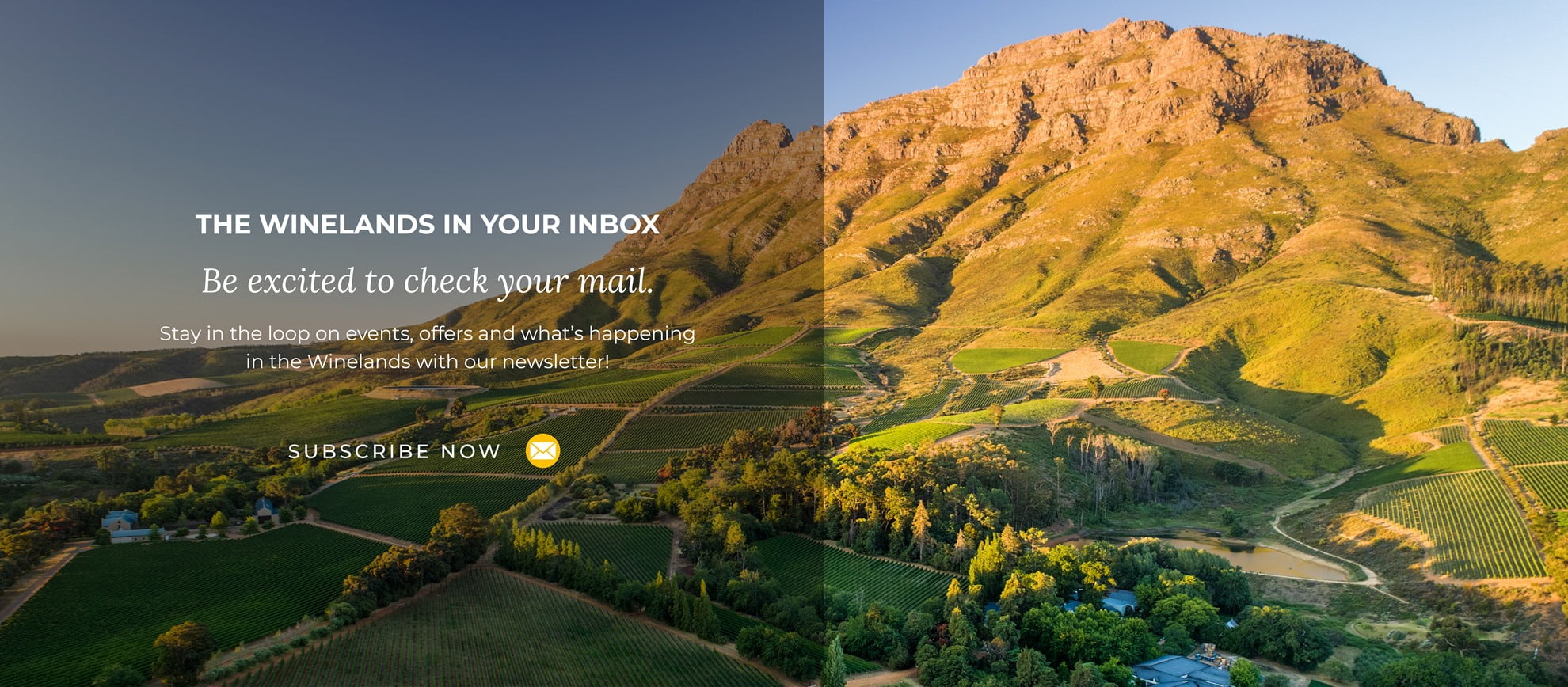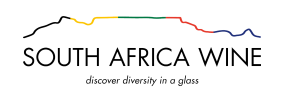Agriculture and activities like the making of wine is often a family affair, as the stories of many of South Africa’s winemakers reflect. Marking Father’s Day this month, Maryke Roberts asked some of them to be re-told.
Father’s Day is said to have its origins in America, where it has been celebrated for the past 108 years. The story goes that in May 1909, Sonora Smart Dodd of Spokane, Washington, attended a Mother’s Day sermon. She decided to designate a day for her dad, William Jackson. Sonora’s mother had died in childbirth, and her father, a Civil War veteran, had taken the responsibility of raising the newborn and his other five children.
The following year, she wanted to celebrate Father’s Day on June 5, her father’s birthday, and petitioned for the holiday to be recognized in her city. Needing more time to arrange the festivities, Spokane’s mayor pushed the date back by two weeks, and the first Father’s Day was celebrated on June 19, 1910.
Today, it is celebrated all over the world.
In France, the idea of Father’s Day was adopted by companies that sold lighters. It was marketed as a day to buy a lighter for your father who smoked. Nowadays, a lighter is given as a gift on the day alongside other things. In Thailand, they celebrate fathers on the birthday of the king. The king gives a speech and women and children give their fathers the Canna flower, which is associated with masculinity.
In South Africa, the third Sunday in June is assigned for the occasion.
In the case of winemakers, there are many stories – whether they follow in their winemaker-father’s footsteps or just appreciate well-earned advice.
Philip Jonker, Weltevrede Estate
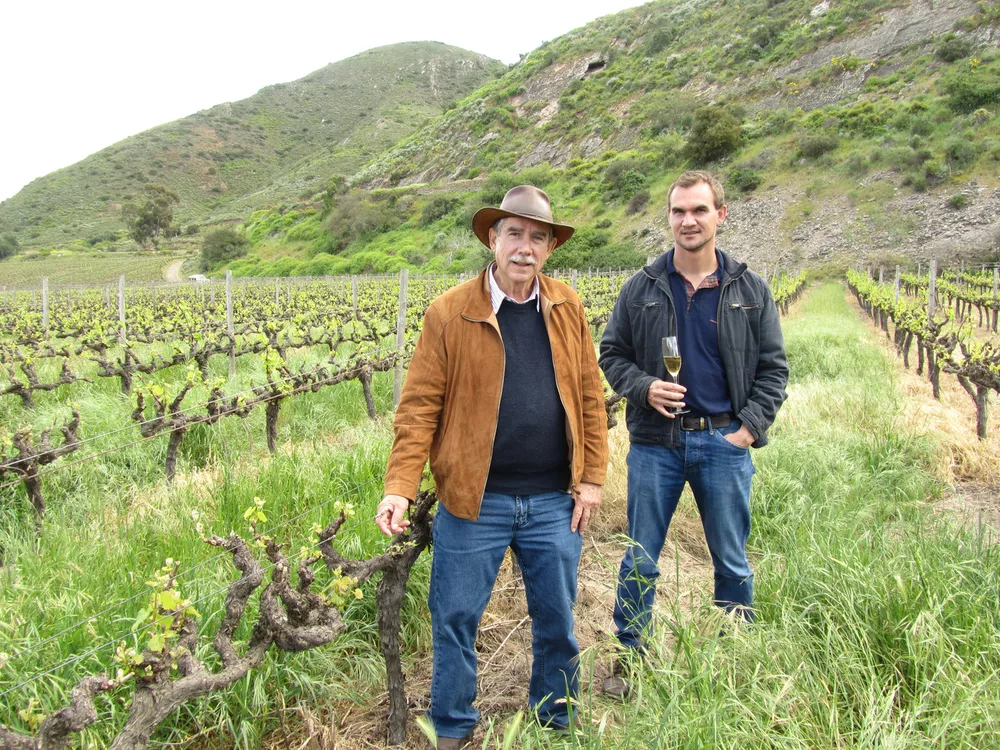
Philip Jonker is the fourth-generation winemaker at Weltevrede Estate outside Bonnievale. His father, Lourens, completed his degree in viniculture and undertook extensive study tours of the winelands of Europe and California in 1962 before settling at Weltevrede. Lourens took over the 65ha farm after his father’s death and subsequently purchased neighbouring farms – now consolidated as a 160ha estate.
Lourens is a pioneer of the South African wine industry. He was chairman of the KWV and served on several industry bodies as well as the boards of companies outside the wine industry. In 1996, the SA Agricultural Writer’s association named him South African Farmer of the Year.
Philip joined his father in 1997 after his studies and a year abroad with his wife, studying and working during the harvest season in the Napa Valley, California, and later St Emilion, Bordeaux.
He says the wine world has changed much over the four generations of family winemaking.
“With every generation there is always innovation. After a history of brandies, sherries and sweet wines my father pioneered quality white-wine making at Weltevrede. He has been brave to remain innovative. In his young days he pioneered many ‘firsts’ for the region and industry (for instance he was the first South African winemaker to ferment and mature white wine in French oak barrels), and today at age 78 he remains driven and interested and open to innovation. “I joined the family business just as we started making MCC and red wines and have the privilege to make wine with generations of experience in a very modern winery.”
Philip says family is everything to his father and he has a deep sense of care and has great intuition.
“During a time when it wasn’t going well with the industry he reminded me to keep on doing what we are good at and not to lose confidence, momentum or focus.” His father has also given him confidence.
He says if had to describe his father’s personality as a grape variety he’d nominate a Bordeaux-blend of Cabernet Sauvignon and Merlot. “Cabernet for its firm structure and Merlot for its approachability.”
Paul Clüver Jnr, Paul Cluver Wines
Paul Cluver Wines on De Rust estate in the Elgin Valley, is a fourth-generation family business that has been farming in the valley for more than 120 years. Thanks to renewed efforts by Dr Paul Clüver, third generation farming on De Rust, the family has pioneered Elgin as a premium wine growing region.
Their focus is on producing world class wines that reflect the uniqueness of the valley, while being mindful of farming actions both on the environment and on their community. More than half of the estate is under conservation. The farm is closely connected to De Rust Futura school which was founded by grandmother Gertrude Cluver more than 60 years ago. Four of the five Clüver siblings are currently involved in the business, taking over the reins from parents Paul and Songvei.
Paul Clüver Jnr, is Managing Director. He says his father is a real inspiration in his life and has taught him, amongst others, that if you are going to do something, do it right or don’t do it. “Having said this my father had no problem if you made a mistake or failed at your first attempt, but what he didn’t like was you attempting anything in half-measure. Whether cleaning the car, studying a new subject or learning a skill, this must be done to completeness. This has definitely helped me so much in further life.”
He says they often debate on the learning and/or teaching of grit, and in this instance he does not think his father’s intention was to teach him grit. “It was more me wanting to impress him, leading me to attempting difficult tasks which he thought were not possible. This often gave me the inspiration to attempt them, but very often it didn’t result in success at first. So, I would tell myself I have to keep on trying until I succeeded. I guess you can call it tenacity through inspiration.”
He also learnt from his father that you must read as much as you can. He admists that he hated it when he asked his dad a question as a kid and often his response would be to take him to the row of Encyclopaedia Britannica and told me to read and find the answer myself. “And what’s more, he didn’t allow me to just forget about the topic I was querying as afterwards he would ask me what I had read. As kids, whenever we went somewhere as a family, we had to read about the place we were going to. Now I am so grateful, as reading gives you so much insight and perspective.”
Paul says he also shares his father’s love for hiking in nature. “I always remember going walking with my dad on the farm, and through this I now share our mutual love for nature ut even better hiking in nature.”
Peter Pentz, Groote Post
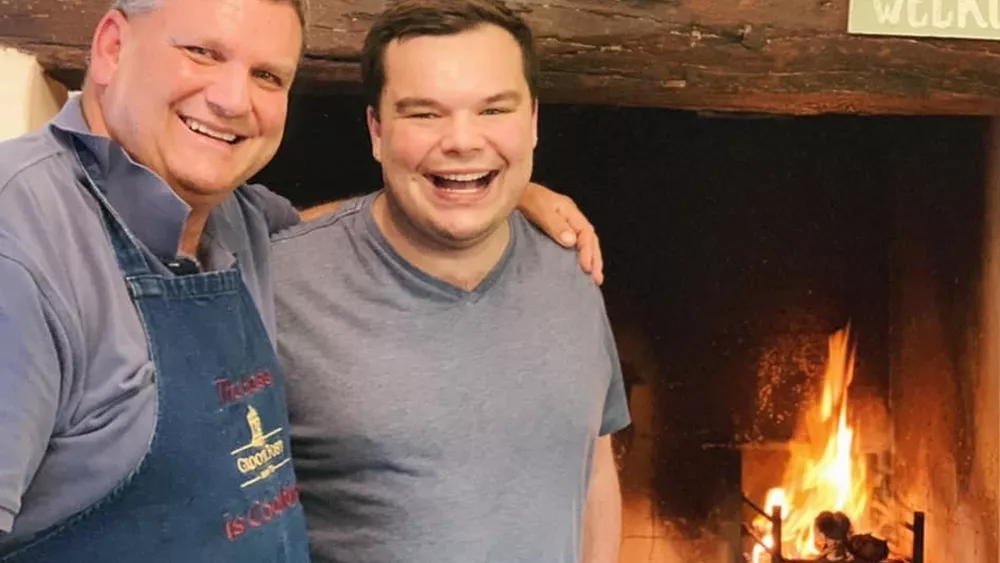
Peter senior and Nick Pentz are third and fourth-generation dairymen who built a world-class wine farm at Groote Post outside Darling. The Groote Post homestead dates back to 1808 and was the home of well-known author, Hildagonda Duckitt. Nick Pentz and his family live in the Groote Post Manor House. The renowned Hilda’s Kitchen restaurant, named in honour of Hildagonda Duckitt, is housed in another heritage site – the Klawervallei Manor House. The name Groote Post is derived from its original status as the largest guarding post in the area, set up to protect cattle from stock thieves.
In 2001 the Pentz family decided to sell off their prize Holsten herd to concentrate solely on the production of world-class wine. Their decision paid off, as Groote Post wines are highly awarded and sold across the world. Nick’s son, Peter junior joined the farm as communications manager in 2020.
Peter says “I always knew I wanted to come back to the farm, but first I wanted to get my degree, a BA in Communication at the North-West University in Potchefstroom (NWU-Pukke, and gain experience in the field of communication. The decision to come back to the farm in 2020 was thus an easy one.
“I permanently joined the farm, the same week as the president announced the first lockdown. It was quite a leap to the deep, to start off by managing COVID communications and re-aligning digital strategies with the pandemic.”
Peter enjoys working with his father, as he says he grants him the space to execute his ideas and they understand each other. “More importantly, we trust each other, and that is crucial in any business. My father comes from a very traditional wine marketing background, whereas I maintain a more ‘modern/digital approach’ but we work from the same basis and foundation. So, although our approaches may differ, the principle remains the same.
He says it is difficult to single out one specific quality that he admires most in his dad, because there are many. “I still think his hard work is something I especially admire. My dad does not stand back for hard work and puts in the hours. If something has to be done, he does it himself. He achieved today what he had achieved through hard work and long hours.”
Father and son both love good music, so they quite often go to music concerts together, and Peter says travelling with his dad is so much fun.
Their 2022 win with their Groote Post Pinot Noir Rosé as best rosé at Rosé Rocks, is currently at the top of their brag list. “I’m really excited about the future of rosé in South Africa; there is an increasing demand for premium rosé, not only locally but also internationally,” says Peter.
Vusi Dalicuba, Vergenoegd Löw
Mvuselelo (Vusi) Dalicuba, is a new generation of winemaker at Vergenoegd Löw – The Wine Estate on the outskirts of Somerset West. Beyers Truter from Beyerskloof and Abri Beeslaar from Kanonkop noticed his talent and nominated him for the position which he took up early in 2021. He was born in the Eastern Cape but grew up in Stellenbosch. His father, Msabalala, a general worker at Distell, received wine every year on his birthday from his employer and so Vusi’s interest in wine as a career was stimulated.
After completing his studies in Viticulture at the CPUT in Wellington, he continued his studies under Lorraine Geldenhuys at Elsenburg, thanks to a scholarship from the Department of Agriculture.
He did his Honors and then his Masters in Sauvignon blanc, which grows in two different regions (warm and cool) and is planted in different patterns.
Vusi makes an extensive range of wines on the farm, which includes Sauvignon blanc, Shiraz Rosé, Merlot, Shiraz, Cabernet Sauvignon, and a Portuguese blend.
Vusi says it was in high school that he first comtemplated becoming a mechanical engineer. All of that changed when the principal changed Mathematics to Maths Literacy in matric.
“After finishing matric I enrolled for a diploma in Agriculture at the Cape Peninsula University of Technology (CPUT). In the second semester, we had to choose specialised modules. All my friends chose specialities they knew of. No one chose Viticulture and Oenology. I asked one of the lecturers, who explained the subjects to me, and I realised that you could study to become a winemaker and viticulturist. My dad’s wine and the talk with the lecturer sparked my career in winemaking.”
Vusi says his father taught him to work hard and put all your energy into whatever you do; to accept responsibility for every decision he makes but to take things easy and to enjoy life as if tomorrow was not guaranteed. These are lessons that Vusi lives by.
“My father never went to school, but he made sure that all his children did. He supported us in every decision we made regarding career choices. He always says ‘be yourself in whatever you do and never forget who you are and where you come from’.”
Tinnie Momberg, Midddelvlei Estate
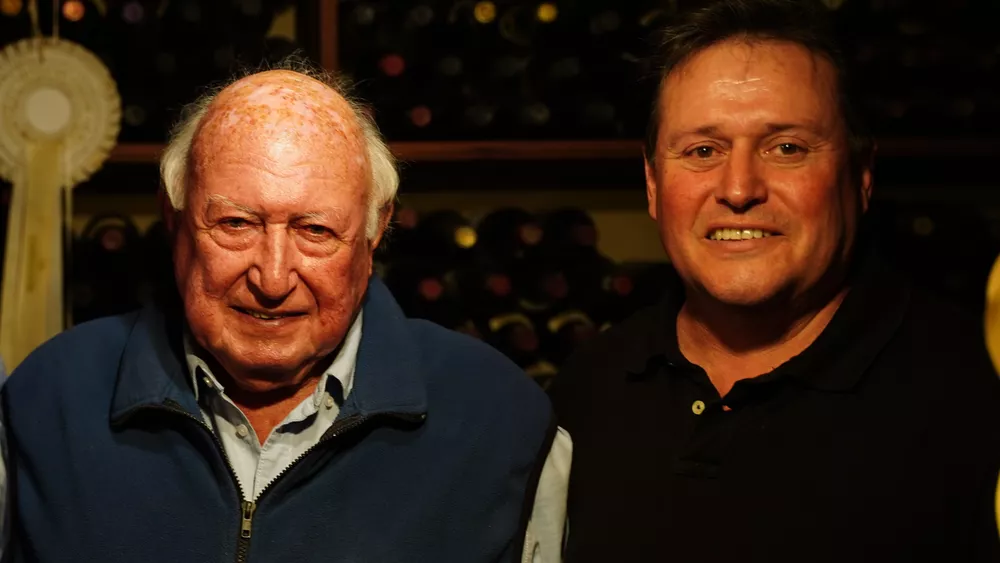
The Mombergs have been farming and making wine on Middelvlei Estate outside Stellenbosch since 1919. Tinnie Momberg, the third-generation winemaker, works along with his brother, Ben, while his father, Oom Stiljan (quiet Jan) Momberg, is always on hand with advice. He owned the farm and made wine for more than 30 years. To leave the farm in the capable hands of his two sons is a dream come true.
Tinnie took over the winemaking reigns in 1992. Middelvlei is synonymous with superb Pinotage, Shiraz, Cabernet Sauvignon, Merlot, and Chardonnay. Tinnie’s Free-run Pinotage, a unique wine made through natural unpressed processes, has gained the farm many accolades.
The farm is also known for its traditional braais that can be enjoyed with a wine tasting in the Boerebraai Restaurant, where guests can enjoy braaibroodjies (toasted sandwiches on the open fire), boerewors (sausage), lamb chops, and homemade jams and pudding.
Tinnie studied B Argic Admin with winemaking and viticulture. “My dad made his last wine in 1991 and I made my first in 1992. I started out on his recipe and as the demand for different wine styles changed, I also had to change my recipe to make wines that were more ‘user-friendly and could be drunk sooner than the aged wines.”
He says the quality in his father that he admires most, is his precision in detail. He believes there is only one way to do something and that is the right way and Tinnie respects that.
He says with a big smile that the biggest lesson he learned from his father, is to stay calm and think before you talk.
The Momberg father and son like to braai or make a potjie. Tinnie says just to sit on the stoep and talk about the wine and what is on the fire, is their special time together.
Tinnie says the most recent accolades they are very proud of, include Gold at Vitis Vinefera Awards and a Platter 4 ½ star rating for the Middelvlei Cabernet Sauvignon 2019 as well as a Gold for the Middelvlei Momberg 2019 at the Michelangelo awards.
Johann de Wet, De Wetshof
De Wetshof – the first registered wine estate in the Robertson Wine Valley and one of the third generation wine estates in the country – is internationally recognised for the pioneering role it played in introducing the noble Burgundian Chardonnay grape to the country. Johann de Wet has taken-up the role of CEO and is also responsible for the vineyards, while brother Peter runs finances and logistics. Both are also actively involved in winemaking and strategy along with their father Danie.
Danie is a pioneer of noble white wines in South Africa and has also introduced superior red cultivars to the valley. A graduate of the Geisenheim Institute in Germany, one of the world’s leading centres for the study of viticulture and cellar technology, De Wet’s wines express the uniqueness of the soils of De Wetshof and meticulous attention to detail.
The cellar façade is based on the renowned and historic First Customs House in Cape Town, while the tasting room/administration offices is a replica of the Koopmans/De Wet House in Strand Street, Cape Town, dating back to 1791. Both buildings were designed by Louis Michel Thibault one of the most renowned architects of early Cape architecture.
Johann says: “Growing up on De Wetshof I was obviously exposed to my father’s profession as a wine-farm owner and winemaker from an early age. Here I learned that if I were to follow in his foot-steps one had to realise that wine is not a job, but an integral part of your being, requiring total full-time commitment. Also, that a wine-farmer’s responsibilities are required at every part of the operation – the small things matter to make the big things work.”
He says the best advice he received from his father is that his job is to be everywhere and to see everything on every level of the business – vineyards, the cellar, marketing and exports. “As a leader, one has to know what is going on everywhere, and with everyone. Surround yourself with good people and learn to delegate. And always look ahead to new possibilities. As my father always says: ‘To find initiative you have to grab imagination.’”
He continues to say that De Wetshof is committed to producing excellence through Chardonnay, and together with many other producers, have shown that South Africa can compete with the very best wines made from this grape anywhere in the world. “The fact that my father played a pioneering role in establishing Chardonnay in the country and allowing us to achieve our current status as world-class producers is something of which I will be forever proud.”
Johann says being part of building De Wetshof into the brand it is today and experiencing the respect they have attained, through commitment and hard work, makes him very proud.
Alicia Rechner, Backsberg Estate Cellars
Alicia Rechner from Backsberg Family Wines says her most beautiful memory of wine and wine-drinking dates back to 1994 when she told her dad, Wennard (better known as “Wennie”) she was switching courses at Stellenbosch University. Her parents have a farmstall near De Doorns.
“I originally enrolled for Animal Sciences, but after the first class realised it wasn’t for me. I attended a few classes in winemaking and spoke to friends, which made up my mind,” she says.
“When he heard my news, he was ecstatic. It was something very different to anything anyone in our family had ever done. He took me on an exploration day and my first visit to a wine farm. We started at Lievland and then down the road to Kanonkop, Muratie, Delheim, Morgenhof.
“They were all beautiful: the oak trees, maturation cellars with the oak barrels; it was all so impressive. This was my favourite wine day. I was excited to know that one day I would work in conditions like those. That day I knew I’d made the right choice.”
She says her dad raised her and her two sisters with the knowledge that they never had to stand back for men.
“All career possibilities were open to us. He formed the concept in my mind that I am an equal to men in all ways. That is the characteristic I still admire most: that he has no domineering male ego and treats women as equals or even superiors.”
Alicia recalls the day she was a first-year winemaking student. She and her dad decided to make wine from the vine suspended over their veranda . They stomped the grapes in two buckets and worked on the preparation for two weeks.
“I had no idea that there was a difference between wine grapes and the grapes in our garden. After a few weeks, it looked like wine, but tasted awful. I took a sample to the university and asked Prof Jool Van Wyk why the wine tasted so bad. He laughed so much! It took me another two years to make proper wine.”
Alicia says she is very proud of the cellar’s maiden vintage of the Patriarch Cabernet Franc 2021. The Patriarch commemorates the legacy of the iconic Sydney Back: an incredible father, grandfather, winemaker, businessman, philanthropist and industry pioneer. Much like Sydney, this wine has real punch, heart and soul, and is only produced in exceptional vintages from the very best vineyard blocks. But in a way, in her heart, the wine also honours her own father and the influence he had on her life.
Bertho van der Westhuizen, Alto Estate
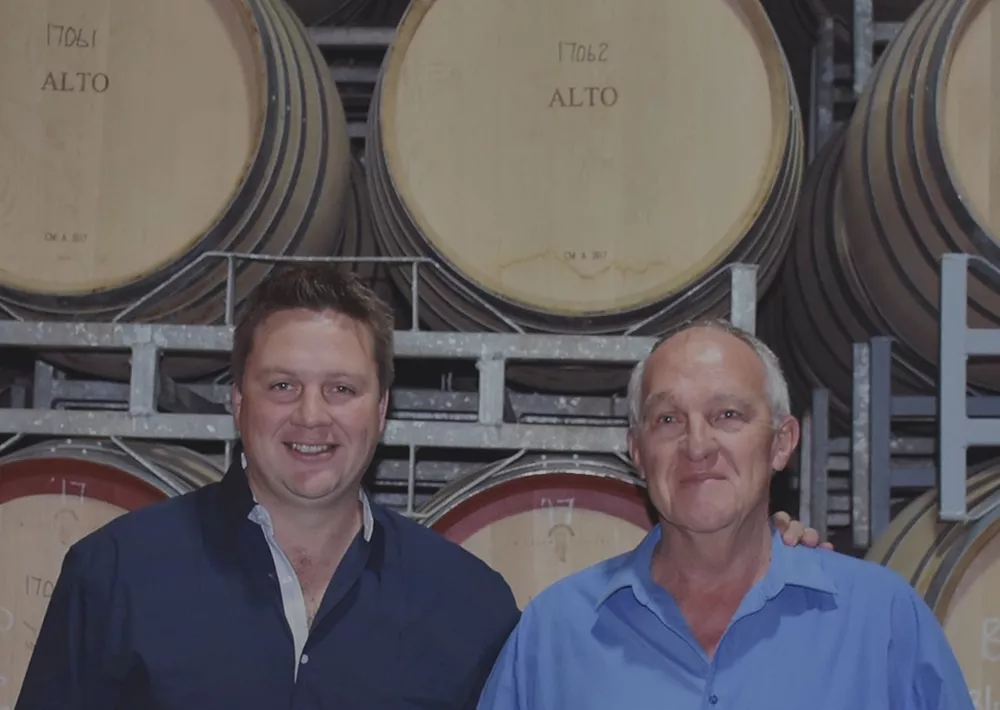
Father and son, Schalk and Bertho van der Westhuizen from Alto Estate. Bertho took over the reigns from his father in 2015. They completed the 2015 harvest together.
Bertho van der Westhuizen, winemaker at Alto Estate outside Stellenbosch, took over the reins from his father, Schalk, who retired after 40 years as winemaker. Schalk was at Alto from 2000 to 2015. A highlight for Bertho was that 2015 vintage; his father’s last and his first on the farm. “It is heart-warming to see how well these wines fare and how special the collaboration between us, made these wines.”
He says the two things he admires most in his father are his thoroughness and simplicity. “He left me a business where everything was sorted. Everything I do daily, is basically done in the same way he did it.”
The two characteristics of his father he recognises in himself, are gratefulness and unselfishness.
His father’s approach to winemaking is that wine is made in the vineyard and the best compost for a vineyard is the winemaker’s footprints. Bertho works to that motto every day.
Charmaine Arendse, Esona Boutique Wines
Charmaine Arendse is the cellar manager at Esona Boutique Wines near Robertson. She says winemaking is in her blood, as her father, Manie, was an experimental winemaker at the former Stellenbosch Farmers Winery (Distell) for more than 27 years. He was also the white-wine maker at Graham Beck Wines for seven years.
“My father was very passionate about his work. He would get up at night and go to the cellar to experiment, if he felt it wasn’t up to standard. In his second year at Graham Beck his wine was a Class winner at the SA Young Wine show. I admired his passion and perfectionism.”
Sadly, he passed away in March 2003. Her fondest memory of him was of Friday nights on the farm Madiba. Her father would open a bottle of his own wine, especially the Waterside White or Railroad Red, and the family would gather around the braai and talk about their week. Here the problems of the world were dissolved.
Her own wine journey started in 1994, not on the winemaking side, but in a goods store at Rooiberg Cellar near Worcester. Her childhood dream of becoming a policewoman faded as she grew older and admired her father more and more. Today, she is on her way to become a winemaker.
“My father taught me hard work and determination pays off. That’s why he became the first ‘winemaker of colour’ in 1992. He was also the first person in Robertson to harvest at night. She says she admired his passion and patience to create the perfect wine.”
Charmaine’s sister, Dorothy, is also in the wine industry – a field she’s been in for 25 years. She currently works at Simonsig Wines.
Charmaine says her father was the one she turned to for advice. “In my teenage years I realized I’m different from other girls. In those years it was a big thing and I was afraid to climb out of the closet. After all, my dad was a pastor! I eventually told my parents; my father said he knew all along and told me to be who I am.”
One of his life motto’s was his belief that workers should be educated. They should know and understand why they perform certain tasks. “An educated worker is a smarter worker, and then you get the best from people. Teamwork was his key to success.”
She would have loved to share her news of becoming an assistant winemaker, following in his footsteps. “I imagine relaxing with my sis and dad with a bottle of wine, discussing wine.”
Thys Louw, Diemersdal
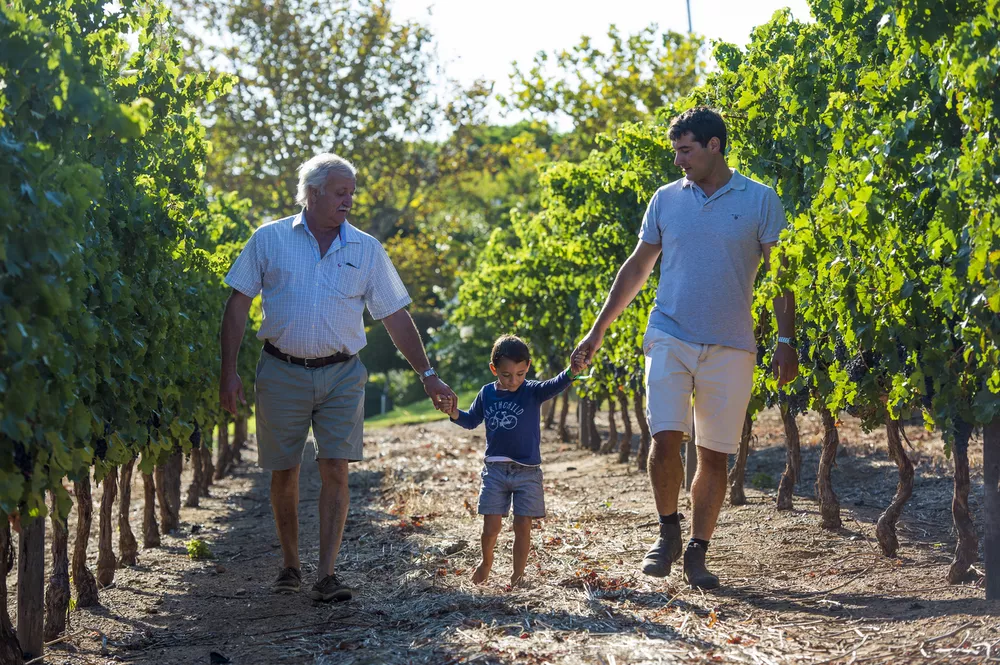
Thys Louw is the sixth-generation winemaker at Diemersdal in Durbanville. His father, Tienie snr has been making wine for more than 30 years. They work well together and are very close. Thys studied agriculture, not winemaking. “I reckoned I can be taught by nobody better than my father who had three decades of winemaking lessons behind him,” he says.
Thys says he knew from a young age his future lay on the farm. “My father spent many hours including me in everything concerning the farm and winemaking.” He now does the same with his young son, Tienie. He even makes his own “wine” every year.
Thys describes his father as being very straightforward. The basics are important, and he believes in doing things right. “There are no airs and flairs,” he says laughing.
As a winemaker, he admires his father’s temperament; he is cool, calm and thinks things through all important elements in a wine cellar. Thys says his father learnt from the Diemersdal heritage and previous generations. He is a “family first” man, building on the wisdoms accumulated over generations.
It was under Thys and Tienie that the farm moved away from bulk wine supply. “My father is a forward thinker. He realised back then that we could add value without a middleman.
“Today, I buy in just as many grapes as we produce, and it is all bottled. I drove with my dad as young boy to deliver our grapes. Now my young son rides with me when I collect grapes. My dad shared that vision years ago and we achieved our goal.”
Diemersdal Estate underscored its quest for greater complexity in the farm’s Sauvignon Blanc offering by being one of only four South African producers to wine a top-scoring Platinum Award at the Decanter World Wine Awards held in London. The Platinum recognition went to Diemersdal The Journal Sauvignon Blanc 2022, a wine inspired by Thys’s infatuation with the Sauvignon Blanc wine from Sancerre in France.
Editor’s Note: This post was originally published in June 2018 and has been updated for accuracy and comprehensiveness.
